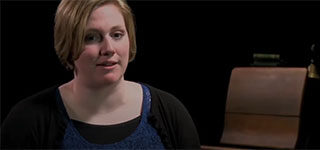Traditional Undergraduate
Early Childhood Education/Special Education
Bachelor’s + Master’s Program (BS/MEd)
Credits
157
Course Length
16 weeks (semester)
Delivery Method
Traditional On-Campus, Lancaster
Study Early Childhood Education (PK-4)/Special Education (PK-12) at LBC | Capital
Do have a heart for service? Do you love children? Do you find a special connection with disabled individuals? Then our five year undergraduate and graduate program for special education is right for you. Through this 4+1 program, you’ll be equipped to serves preK-12 through twelfth grade students across the spectrum of learning.
Come and learn from master teachers who have years of experience in the classroom. Plus, you’ll start working with students beginning in your very first semester as an aspiring educator, allowing you to get a feel for what the job is really like. Our degree in special ed prepares future teachers to engage with students with a variety of struggles and special needs – from students with Downs Syndrome, ADHD, behavioral disorders, emotional disorders, learning disabilities and more – to achieve so much more in the classroom. Learn how to an creative effective IEP (individualized education plan) and other important skills that any special ed teacher needs. Through a combination of Bible classes, field placements in diverse educational settings (including Christian schools, public schools, daycare, preschools and Montessori academies), coursework and field experiences that focus on understanding the needs of the child and implementing developmentally appropriate practices, this is an educational experience like none other.
In a 4+1 program, students work toward the completion of an undergraduate degree while also pursuing a Master’s degree. Graduate-level courses taken during undergraduate studies fulfill both undergraduate elective requirements and graduate program requirements. In this 4+1 program, students are dual-enrolled in LBC and Capital Seminary & Graduate School.
Program Cost
Admissions Process
Where LBC Students Have Interned or Student Taught
- Student Teacher in a Local Public School
- Student Teacher in a Foreign Christian School in Ecuador
- Student Teacher in a Local Christian School
License, Certification & Credential Information
Graduates from this major receive Pennsylvania Instructional I certification (PreK-4), Special Education certification (PreK-12 ) and Association of Christian Schools International (ACSI) Standard certification (K-8)
Can I Transfer Credits?
Yes! Read about LBC’s transfer policy
Bachelor's Program Scope
Early Childhood/Special Education (157 Credits)
Bible & Theology Core 33 Credits
Arts & Sciences Core 37 Credits
Education Core 86 Credits
LBC 100 Foundations Seminar 1 Credit
View the Academic Catalog for the complete curriculum plan, course descriptions and complete program details.
Program Distinctive - What makes this program at LBC unique?
- Earn two education degrees – an undergraduate and graduate degree – in just 5 (five) years. Most master’s degrees (MEds) typically take a least two years to complete, and most elementary and high school teachers in public schools in the United States are required to earn a master’s degree in order to maintain their teaching certificate in the state of Pennsylvania.
- Receive a Pennsylvania Instructional I certification (PK-4), Special Education (PK-12) and an Association of Christian Schools International (ACSI) Standard certification (K-8) so that you have the option of teaching in public and Christian schools.
- Get real experience teaching through our practicum and student teaching program gives you practical, hands-on experience in a classroom, under the supervision of an experienced teacher.
- Enjoy courses taught from the foundation of a biblical worldview and from seasoned educators.
Programs leading to teacher certification are approved by Association of Christian Schools International (ACSI) and Pennsylvania Department of Education (PDE).
Career Paths in Early Childhood/Special Education
This bachelor’s/master’s degree prepares students for various of educational contexts. Here is a sampling of careers and opportunities this degree affords:
- Special Education Teacher (Special Ed Teacher)
- Elementary School Teacher
- Learning Support Teacher
- Preschool Teacher
- Teacher’s Aide
Program Goals – In this program, students will…
- Integrate knowledge to design coherent learning experiences.
- Implement safe, equitable, learning-focused environments.
- Demonstrate effective instructional practices.
- Demonstrate professionalism.
- Integrate a biblical worldview.
Core Education Courses For This Major
ELE 101 Introduction to Early Childhood Education
EDU 103 Professional Seminar I
EDU 105 Instructional Technology
EDU 204 Instructional Design
EDU 333 The Exceptional Child
ELE 201 Math Instruction for the Young Child
ELE 205 Integrating Play, Movement, and the Arts
EDU 301 Teacher Education Internship I
EDU 302 Teacher Education Internship II
EDU 410 Teaching the English Language Learner
EDU 335 Inclusionary Practices
EDU 340 Introduction to Curriculum & Assessment
ELE 352 Social Studies in the Elementary School
EDU 401 Teacher Education Internship III
EDU 461 The Cross Cultural Experience
EDU 402 Teacher Education Internship IV
ELE 320 Literacy Instruction – Primary
ELE 321 Literacy Instruction – Intermediate
ELE 354 Methods of Teaching Science
EDU 430 Classroom Management
EDU 519 Foundations & Framework for Learning
EDU 526 Diagnostic Reading Assessment
EDU 570 Apprenticeship I
EDU 598 Seminar in Action Research
EDU 560 Teacher’s Life and Work
EDU 550 Socio-Cultural Perspectives on Education
EDU 580 Apprenticeship II
EDU 599 Project in Action Research
SPE 501 Assessment and Special Education Processes
SPE 502 Meeting the Needs of Students with Autism & Behavioral Disorders
SPE 503 Teaching Students with Specific Learning Disabilities & Intellectual Disabilities
SPE 504 Teaching Students with Low Incidence Disabilities
SPE 505 Professionalism, Ethical Practices and Collaboration
Visit the undergraduate and graduate catalogs for the complete listing and descriptions.
